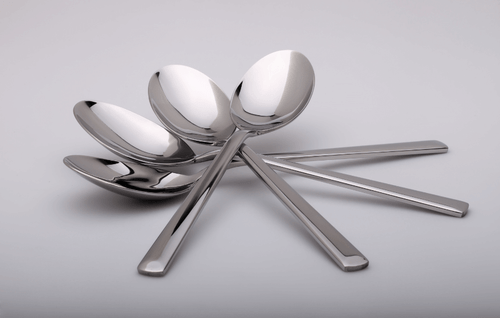The Spoon Theory: A Simple Way to Explain Something Really Hard
If you've ever felt completely drained just from doing everyday things - like getting dressed, making breakfast, or answering a few emails - you might already understand The Spoon Theory... even if you didn’t know it had a name.
And if you're raising a neurodivergent child or you are neurodivergent yourself, this simple metaphor might help explain why some days feel impossibly hard, even when nothing dramatic has happened.
Let’s break it down - gently, honestly, and with zero judgement.
What Is the Spoon Theory?
The Spoon Theory was created by Christine Miserandino, a woman living with lupus, to help explain the invisible energy drain of chronic illness to her friends. But it’s since become a powerful way to talk about energy levels and capacity - especially for people with:
- Autism
- ADHD
- Chronic illness
- Mental health conditions
- PTSD
- Sensory processing challenges
- Fatigue and burnout
Here’s how it works:
Imagine you start each day with a limited number of spoons. These spoons represent your physical and mental energy. Every task - no matter how small - costs a spoon.
Getting out of bed? That’s one spoon.
Getting dressed (with itchy tags and tricky buttons)? Another spoon.
Social interaction? Two spoons.
Unexpected noise or sensory overload? Might cost five.
When you’re out of spoons... you’re done. There's no pushing through. You can’t borrow spoons you don’t have. You need rest, recovery, and sometimes, space to fall apart.
Why It Hits Home for Neurodivergent people
For our sensory-seeking, emotionally intense, chronically anxious, or easily overwhelmed kiddos, the world is full of extra spoon drains.
- Going to school might use up all their spoons by 10am.
- Catching the noisy bus could cost more than the entire school day.
- Talking to people? Exhausting.
- Wearing clothes that feel wrong? More spoons gone.
Even joyful things can cost spoons. A trip to their favourite park might be fun and leave them totally wiped out.
Understanding this helps us meet them with more empathy and less “why are you so tired? You’ve barely done anything!” Because they have done something - they’ve survived a world not built for their nervous systems.
What This Means for Parents
If you're parenting a low-spoon kid, you’ve probably seen the after-school meltdowns, the weekend shutdowns, the resistance to do “easy” things. It’s not defiance. It’s depletion.
You might also be running low on spoons yourself. Caring for a child with high support needs, making 1,000 micro-decisions a day, managing your own emotions and theirs... it’s spoon-sucking stuff.
So give yourself grace. You’re allowed to run out of spoons too.
How to Use the Spoon Theory in Real Life
Here’s how I use it in my own family:
Language - “Hey buddy, do you feel like you're low on spoons right now?”
Planning - We look at the week ahead and talk about what might use up spoons, and where we can build in recovery time.
Advocacy - I’ve used spoon talk in school meetings to help explain why my child needs sensory breaks or reduced hours. It often clicks with people in a way technical terms don’t.
Self-checks - I ask myself, “Do I have the spoons for this right now?” If not, I give myself permission to say no.
Final Thoughts (From One Low-Spoon Parent to Another)
The Spoon Theory doesn’t solve everything - but it helps. It gives us a way to talk about energy, limits, and needs without shame.
And maybe most importantly - it reminds us that not all disabilities are visible. That rest isn’t laziness. That being “tired” isn’t always about sleep.
So if today feels like a low-spoon day, please know this: you’re not failing. You’re doing the best you can with the spoons you have.
And that? That’s more than enough.
With warmth, rest, and a spare spoon (if I can find one),
Jody ?
Neurodivergent mum of three, founder of Sensory Oasis for Kids
Recent Posts
-
What If Neurodivergent Brains Are the Future?
For years, the conversation around autism, ADHD, and other neurodivergent profiles has focused on de …Feb 23, 2026 -
When Back to School Doesn’t Happen
Every January, my feeds fill with first-day photos. Crisp uniforms. Fresh haircuts. Nervous smiles a …Feb 09, 2026 -
How to Write an Advocacy Email That Actually Gets Read
Because “per my last email” just isn’t cutting it anymore… If you've ever sat down to write an email …Jan 27, 2026




